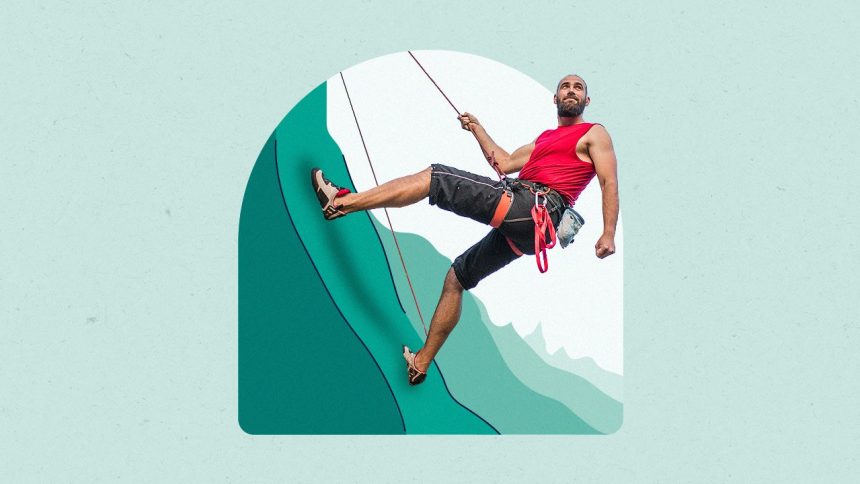Whether it’s been months or years since you paid off a balance, going into debt again can feel less than ideal. After all, being debt-free gives you financial freedom and time to dedicate your money to other goals.
However, it doesn’t necessarily mean you’re taking two steps back if you find yourself in debt again.
The skills and tools you learned from your previous debt repayment journey can help you now and aid you in paying down your balance a second time.
Take these steps if you find yourself in debt again.
Get a handle on your finances
Getting a bird’s-eye view of your debt, income, and overall budget will help you make informed decisions about the path ahead.
First, determine your debt. Ideally, you’ll want to make more than the minimum payment. This will pay down the balance more quickly and save you money on interest.
Next, you’ll want to know where every dollar of your income goes. Track your expenses from the past couple of months and determine your essential and non-essential expenses and how much you have left over for debt repayments.
Using a debt payoff calculator can help you determine your timeline based on what you have to dedicate to your debt repayment and how much interest you’ll accumulate.
Evaluate your budget
Once you have a handle on your finances, it’s time to scrutinize your budget. Ideally, you should make the largest payment possible toward your debt each month while prioritizing essential expenses.
Cutting out non-essential expenses can help you free up money toward your payment. You don’t need to strip down your expenses to the point where you live solely on rice and beans. However, holding off on big splurges can help you pay off debt faster.
Even as you dedicate money to your debt payment, it’s a good idea to keep contributing to your emergency fund. An emergency fund can help you cover your debt payments if you lose your income and help you from getting into further debt.
Research your options
Being in debt doesn’t mean you’re limited to one option for paying it off. Depending on your situation, you can change your payment plan, interest rate or balance.
If your debt is still relatively new, or if you’re facing the prospect of going into debt because of a large bill, see if you can talk to the lender or issuer about a payment plan. Many hospitals offer financial aid based on income and your ability to repay medical debt and can set up an interest-free payment plan if you qualify.
If your credit score is good, consider consolidating or refinancing your loan for a better interest rate. A lower APR can reduce your monthly payment and help you pay off your debt more quickly. Consolidating multiple loans can also make the payment process more simple.
Using a calculator when considering consolidation or refinancing can help you determine if you’re getting a good deal.
Another option to consider is a balance transfer card. These generally require a higher credit score. However, you can catch up on your payments without growing interest.
Finally, if you’re struggling to make debt payments, you may want to consider debt relief, also known as debt settlement. A debt settlement company like National Debt Relief can negotiate down your balance with your creditors and reduce your payments, making repayment more manageable with your income.
Build a timeline
Once you’ve evaluated your options, balanced your budget and figured out a payment plan that works for you, build a timeline and create a goal for paying off your debt.
As mentioned above, using a debt repayment calculator can help you determine when you can expect to pay off your balance.
Having a goalpost and an end in sight can help motivate you as you pay off your debt and allow you to account for delays or bumps in the road.
Learn from your experiences
Paying off debt a second time might feel like you’re regressing in your financial journey. However, it’s important to know that debt can be a valuable tool in the long run. It isn’t always avoidable in the modern economic landscape.
Instead, you can use the skills, tools and habits you learned from your previous repayment journey to help make your second round with debt smoother and quicker.
Paying off debt takes discipline and focus, both of which will help you as you pay off your debt a second time. You’ll also likely be familiar with using calculators, building a budget and what expenses you can live without as you pay off your debt.
It’s also a good idea to consider how you got into debt a second time and if it’s an experience you want to avoid.
It’s one thing to go into debt with a tangible goal, such as getting a mortgage to own property and build wealth. It’s a different case, however, if you took on debt because you couldn’t pay off your credit card after a vacation or had to take out a personal loan because you didn’t have an emergency fund to pay an unexpected bill.
With this knowledge, you can avoid further debt, such as managing your spending, bulking your emergency fund or avoiding situations that can land you in debt.
What next?
Handling debt a second time can allow you to use the skills and knowledge you picked up from paying off your balance in the past.
By planning out your finances, leveraging your budget, researching your options and building on the financial habits you used to pay off debt, you can quickly pay down your balance and enjoy the financial freedom that comes with being debt-free once again.
If you want to learn more about managing your finances, mental health and debt repayment plan, check out Bankrate and National Debt Relief’s ongoing article series about debt. Watch this space for tips, tricks and exclusive stories from readers like you and their debt repayment journeys.
Read the full article here














